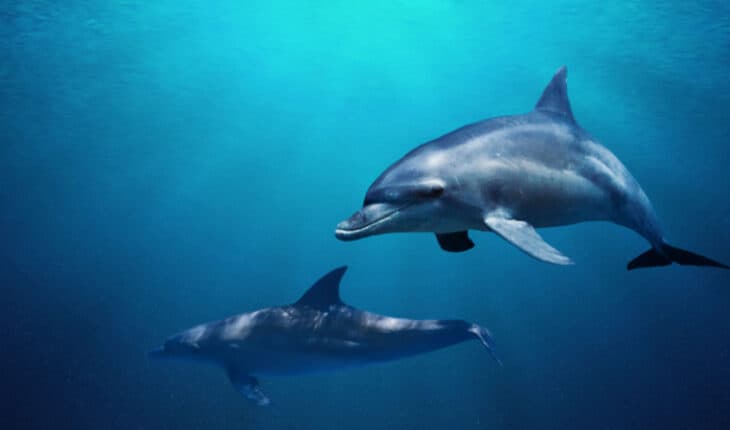Stranded dolphins show signs of Alzheimer’s: The brains of three different species of stranded dolphins show classic markers of Alzheimer’s disease, according to a new paper.
The findings could support the ‘sick-leader’ theory, whereby an otherwise healthy pod of animals find themselves in dangerously shallow waters after following a group leader who may have become confused or lost.
Experts studied the brains of 22 odontocetes, toothed whales, from five different species – Risso’s dolphins, long-finned pilot whales, white-beaked dolphins, harbour porpoises and bottlenose dolphins – that had been stranded in Scottish coastal waters.
They found that four animals from different dolphin species had some of the brain changes associated with Alzheimer’s disease in humans.
Unexplained events
The study – a collaboration between the Universities of Edinburgh, St Andrews and Glasgow, and the Moredun Research Institute – may provide an answer to the unexplained beaching events in some odontocete species.
Whales, dolphins and porpoises are regularly stranded around the coasts of the UK. They are often found stranded in groups, or pods, in shallow waters and sometimes on beaches.
While some animals can be moved to safer, deeper waters by teams of experts, other animals are less lucky and perish as a result. The underlying causes of live stranding events are not always clear, and research is ongoing to gain better insights.
Brain pathology
Experts found that the brains of all the aged animals showed a hallmark of Alzheimer’s disease known as amyloid-beta plaques, which form when abnormal levels of the amyloid-beta protein clump together between neurons, disrupting cell function.
Three animals in particular – each from a different odontocete species – had amyloid-beta plaques as well as a number of other dementia-related pathologies in their brains, showing that some odontocete species develop Alzheimer’s-like neuropathology.
However, the study was unable to confirm whether any of the animals would have suffered with the same cognitive deficits associated with clinical Alzheimer’s disease in humans.
We were fascinated to see brain changes in aged dolphins similar to those in human ageing and Alzheimer’s disease. Whether these pathological changes contribute to these animals stranding is an interesting and important question for future work.
Professor Tara Spires-Jones of University of Edinburgh
I have always been interested in answering the question: do only humans get dementia? Our findings answer this question as it shows potential dementia associated pathology is indeed not just seen in human patients. This study is also a great example of both different research institutes, but also different branches of the Life Sciences working together.
Professor Frank Gunn-Moore University of St Andrews
All animals in this research were studied after a stranding event. Marine Scotland and Defra fund post-mortem examinations, via the Scottish Marine Animal Stranding Scheme (SMASS), of cetaceans (including odontocetes), pinnipeds and marine turtles that strand and die in Scottish coastal waters.
Related links:
Read the study in the European Journal of Neuroscience
Find out more about the Centre for Discovery Brain Sciences at the University of Edinburgh
This article was published by the University of Edinburgh on 4 Jan, 2023
- New lipid-based pathway discovered as key to memory formation - 25th June 2025
- Crucial link could explain how Alzheimer’s takes hold - 25th June 2025
- Understanding Your Mind Can Improve Daily Life - 25th June 2025






